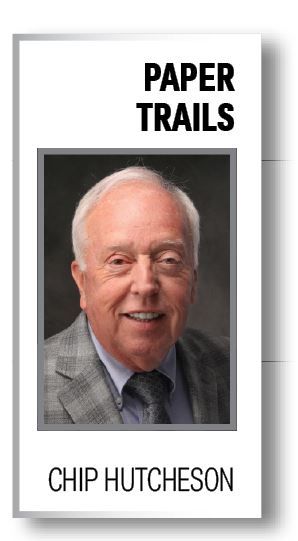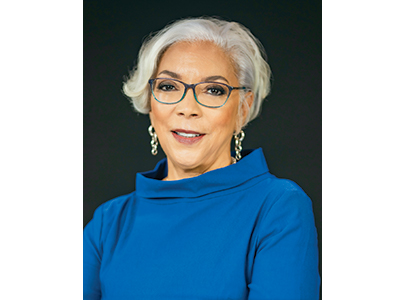Your efforts matter
Chip Hutcheson
Dec 1, 2024


Newspapers matter.
That might sound like I am preaching to the choir, but sometimes choir members get out of tune and need to hear the message that what they do really does matter.
In mid-November, I was reminded of that fact in quite an unusual manner. It came in a text from an optometrist in my hometown — someone I have not seen in several years — asking about a column I wrote well over a decade ago. His daughter had been sent the article by her mother when it was published. The daughter kept it on her mirror since then, but now it was so faded that it was difficult to read.
“Thought you might like to know the influence this article had on her since I guess high school or so,” the man told me in a text.
His daughter is Emma (Smith) Talley, who joined the LPGA Tour in 2018 after winning the USGA Women’s Amateur championship in 2013 and NCAA Women’s Golf championship in 2015. On the LPGA Tour, she has $1.4 million in career earnings and 10 top-10 finishes. She’s broadened her work to include being a contributor to the Golf Channel and LPGA’s podcast. Our newspaper took great joy in chronicling her success through the years.
Her dad included an image of the column with his text. It was indeed quite faded, and my photo that accompanied it bears little resemblance to me today.
My initial thought was that the article in question went back to his daughter’s high school days. She won her first Kentucky high school state championship in 2008, but the next year, she appeared to have her second state title with a six-shot victory — until she realized she had signed an incorrect scorecard. She reported her error of writing down the wrong score for one hole, which led to her losing the title by being disqualified. She was praised statewide for her integrity and went on to win state championships the next two years.
But the article had nothing to do with her illustrious golf career. Rather, it was material my daughter had sent to me on the topic of “five great lessons.”
It led me to consider the reality that people might not always show appreciation for our efforts to keep the community informed. People might not like it when we run a story they are involved with on an inside page rather than front page. But when all is said and done, your efforts to publish a first-class newspaper matter. You might encounter opposition, whether it be by a competitor or a complainer, but resolve to allow that opposition to make you better — not bitter.
A complainer could cause you to re-evaluate what you do. A classic case for me came when a prominent local businessman was charged with a crime. Our paper followed all the legal proceedings, and with every story, we ran his mugshot. His daughter emailed me and didn’t complain that we were covering the story, but she did ask why we had to run his mugshot with every story. After all, she reasoned, everyone in our town of just over 6,000 people knew what he looked like.
Why did we run the mugshot every time? Because that’s what most newspapers do out of tradition. The more I contemplated it, I could see her point. We stopped including the mugshot with every story, and we expanded that practice with similar situations. That’s one time a complaint made us a better paper, in my opinion. It led us to examine ways that “we’ve always done it that way” to see if there was a better way.
A competitor might frustrate you, but competition keeps you on your toes. Most communities find outside entities entering your market with the goal of selling a new product and siphoning off revenue from local advertisers. It seemed like every few years some company tried to enter our market and sell niche products, such as a community map. The typical strategy was to approach the Chamber of Commerce and get an endorsement to give the firm credibility. Finally, enough was enough. We asked the Chamber to let us know when it was aware of someone trying to sell in our market, and we immediately went to work to beat the outsider to the punch. It gave us new products that the community valued and kept the ad dollars in our town.
In the coming days, consider the opposition that you face. Determine that the opposition will make you better, not bitter.
• • • • •
The column from yesteryear mentioned above might be useful for our readers. It seems to have originated with Broadway Teaching Group, and perhaps you might find a purpose for it.
FIVE GREAT LESSONS
1) During my second month of school, our professor gave us a pop quiz. I was a conscientious student and had breezed through the questions until I read the last one: “What is the first name of the woman who cleans the school?”
Surely this was some kind of joke. I had seen the cleaning woman some times. She was tall, dark-haired and in her 50s, but how would I know her name? I handed in my paper, leaving the last question blank. Just before the class ended, one of the students asked if the last question would count toward our grade.
“Absolutely,” the professor said. “In your life, you will meet many people. All of them are significant. They deserve your attention, even if all you do is smile and say hello.” I’ve never forgotten that lesson. I also learned her name was Dorothy.
2) At 11:30 p.m., an older African-American woman was standing by the side of an Alabama highway trying to endure a lashing rainstorm. Her car had broken down and she desperately needed a ride. Soaking wet, she decided to flag down the next car.
A young white man stopped to help her, generally unheard of in those conflict-filled 1960s. The man took her to safety, helped her get assistance and put her into a taxicab. She seemed to be in a big hurry but wrote down his address and thanked him.
Seven days went by, and a knock came on the man’s door. To his surprise, a giant console color TV was delivered to his home.
A special note was attached. It read: “Thank you for assisting me on the highway the other night. The rain drenched not only my clothes, but also my spirits. Then you came along. Because of you, I was able to make it to my dying husband’s bedside before he passed away. God bless you for helping me and unselfishly serving others.
“Sincerely, Mrs. Nat King Cole”
3) In the days when an ice cream sundae cost much less, a 10-year-old entered a hotel coffee shop.
“How much is an ice cream sundae?” he asked. “Fifty cents,” replied the waitress. The little boy pulled his hand out of his pocket and studied the coins in it.
“Well, how much is a plain dish of ice cream?” he inquired.
By now, people were waiting for a table, and the waitress was growing impatient.
“Thirty-five cents,” she quickly replied. The boy again counted his coins. “I’ll have the plain ice cream,” he said.
The waitress brought the ice cream, put the bill on the table and walked away. The boy finished the ice cream, paid the cashier and left. When the waitress came back, she began to cry as she wiped down the table. There, placed neatly beside the empty dish, were two nickels and four pennies. You see, he couldn’t have the sundae because he had to have enough to leave her a tip.
4) In ancient times, a king had a boulder placed on a roadway. He hid himself and watched to see if anyone would remove the huge rock. Some of the king’s wealthiest merchants and courtiers came by and walked around it. Many loudly blamed the king for not keeping the road clear. But none did anything about getting the stone out of the way.
Then a peasant came along, carrying a load of vegetables. Upon approaching the boulder, the peasant laid down his burden and tried to move the stone to the side of the road. After much pushing and straining, he finally succeeded.
After the peasant picked up his load of vegetables, he noticed a purse lying in the road where the boulder had been. The purse contained many gold coins and a note from the king — indicating that the gold was for the person who removed the boulder from the roadway.
The peasant learned what many of us never understand. Every obstacle presents an opportunity to improve our condition.
5) Many years ago, when I worked as a volunteer at a hospital, I got to know a little girl named Liz, who was suffering from a rare and serious disease. Her only chance of recovery appeared to be a blood transfusion from her 5-year old brother, who had miraculously survived the same disease and had developed the antibodies needed to combat the illness.
The doctor explained the situation to her little brother, and asked the boy if he would be willing to give his blood to his sister. She saw him hesitate for only a moment before taking a deep breath and say. “Yes, I’ll do it if it will save her.”
As the transfusion progressed, he lay in the bed next to his sister and smiled, as we all did, seeing the color returning to her cheeks. Then his face grew pale and the smile faded. He looked up at the doctor and asked in a trembling voice, “Will I start to die right away?”
Being young, the little boy has misunderstood the doctor. He thought he was going to have to give his sister all of his blood in order to save her. You see, understanding and attitude, after all, is everything.
Chip Hutcheson is the retired publisher of The Times Leader in Princeton, Kentucky. He was NNA president in 2015. He currently serves as a content strategist for Kentucky Today, the online news website of the Kentucky Baptist Convention. chiphutcheson@yahoo.com










